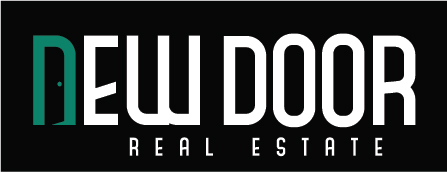Mandatory Licenses and Permits for Businesses in Singapore
Setting up a business in Singapore offers many advantages, such as a robust legal framework, strategic location in Asia, and a favorable tax environment. However, to ensure that your business operates legally and remains compliant with local laws, it’s essential to understand the mandatory licenses and permits required for various business activities. Whether you are establishing a retail business, food and beverage operation, or an online company in Singapore, knowing which permits and licenses you need to obtain will ensure smooth operations.
In this article, we’ll explore the mandatory licenses and permits required for businesses in Singapore, breaking them down by industry and providing insights into the registration process, fees, and compliance obligations.
1. General Business Licenses and Permits
Before diving into specific industry requirements, every business in Singapore must adhere to general business registration and regulatory requirements:
Company Registration
The first step in company incorporation in Singapore is company registration with the Accounting and Corporate Regulatory Authority (ACRA). This process involves choosing a business structure (such as a Private Limited Company, Sole Proprietorship, or Partnership), registering the company’s name, and providing necessary documents such as the Memorandum and Articles of Association.
- Filing with ACRA: The fee for company incorporation in Singapore typically ranges from SGD 1,000 to SGD 3,000, depending on the type of company and the service provider you choose.
- Business Registration Number (UEN): After registration, your company will be issued a Unique Entity Number (UEN), which serves as the official identification number for your business.
Business Licenses
Once your company is officially registered, you may need additional business licenses or permits depending on the type of business you are operating.
2. Sector-Specific Licenses and Permits
Certain business activities in Singapore are subject to additional licenses and permits. Here are some common industries and the specific licenses required:
Food and Beverage Industry
If you are in the food and beverage industry, you will need to obtain the following licenses:
- Food Establishment License: Any business that handles or prepares food, such as restaurants, cafes, and catering services, must apply for a Food Establishment License from the Singapore Food Agency (SFA). This license ensures that your business complies with food safety regulations.
- Fees: The application fee for a Food Establishment License ranges from SGD 120 to SGD 240, depending on the type of food business.
- Conditions: Your premises must meet hygiene and safety standards as stipulated by the SFA, and you may be subject to regular inspections.
- Halal Certification: If your food business intends to serve halal food, you will need to obtain Halal Certification from the Islamic Religious Council of Singapore (MUIS). This certification ensures that the food and ingredients comply with Islamic dietary laws.
Retail Business
Businesses engaged in retail activities (such as selling goods to consumers) must also be aware of the following regulations:
- Retail License: While a general retail license may not be required for all businesses, certain retail activities (such as selling controlled items like alcohol or tobacco) require additional permits.
- For example, if you plan to sell alcohol, a Liquor License issued by the Singapore Police Force is mandatory.
Import and Export Business
If you plan to engage in the import or export of goods, you will need to obtain the relevant licenses:
- Customs License: Businesses involved in the import or export of goods are required to register with the Singapore Customs. You will need a Customs Registration to comply with tax and regulatory requirements.
- Fees: The registration is typically free, but certain goods may be subject to taxes or duties.
Health and Medical Services
Businesses providing healthcare or medical services need to adhere to strict regulatory frameworks. Common licenses required in this sector include:
- Healthcare Establishment License: Businesses providing medical services, including clinics and pharmacies, must apply for a Healthcare Establishment License from the Ministry of Health (MOH).
- Fees: License fees can range from SGD 200 to SGD 3,000, depending on the type of medical service.
- Medical Device License: If your business deals with medical devices or equipment, you will need to register with the Health Sciences Authority (HSA) and obtain a Medical Device License.
Financial Services
For businesses in the financial services industry, such as banks, insurance companies, or payment providers, strict regulatory oversight is necessary:
- Financial Institution License: Companies providing financial services like banking, insurance, or trading in securities must obtain a financial institution license from the Monetary Authority of Singapore (MAS).
- Fees: Application fees and ongoing compliance costs can vary widely depending on the business type and the services offered.
- Payment Services Act (PSA) License: If your business deals with digital payment services, remittances, or electronic money, you may need to apply for a license under the Payment Services Act regulated by MAS. The licensing fees vary based on the type of payment service provided.
3. Employment-Related Licenses
For businesses that employ workers, there are various employment-related permits and licenses that ensure compliance with labor laws:
- Employment Pass (EP): Foreign entrepreneurs and skilled workers who wish to work in Singapore must apply for an Employment Pass. The pass is issued by the Ministry of Manpower (MOM), and the cost of application varies depending on the level of employment and salary.
- Work Permits: If you plan to hire foreign workers for positions like construction, domestic help, or manufacturing, you will need to apply for a Work Permit or a S Pass, depending on the employee’s qualifications and skill levels.
- Central Provident Fund (CPF): Employers in Singapore are required to contribute to the Central Provident Fund (CPF) for Singaporean and Permanent Resident employees. The CPF is a mandatory social security savings program for employees, and contributions are calculated based on the employee’s salary.
4. Environmental and Safety Permits
Certain industries in Singapore must comply with environmental and safety regulations, which may require additional permits:
- Pollutant Control: If your business involves emissions, waste, or other pollutants, you may need to apply for permits from the National Environment Agency (NEA). This applies to industries such as manufacturing, construction, and waste management.
- Workplace Safety: Businesses in certain industries, such as construction and manufacturing, must comply with Workplace Safety and Health (WSH) Regulations and may need specific safety permits or certifications.
5. Application Process for Licenses and Permits
The application process for obtaining the necessary licenses and permits can vary depending on the type of business you’re setting up. Generally, you will need to:
- Register your business with ACRA to obtain your UEN.
- Identify the relevant licenses for your business based on the industry and activities.
- Submit applications to the relevant regulatory bodies such as the SFA, MAS, MOM, or the Singapore Police Force.
- Pay applicable fees and provide any required documentation (e.g., business plans, safety certificates, proof of compliance with regulations).
- Obtain approval from the authorities before starting business operations.
Conclusion
Understanding and obtaining the mandatory licenses and permits is a critical part of setting up a business in Singapore. Ensuring that you comply with the relevant regulations not only protects your business but also helps maintain Singapore’s reputation as a reliable, business-friendly hub in Asia.
By researching and securing the necessary permits early in your company formation process, you can ensure that your business runs smoothly, avoids penalties, and adheres to local laws. Consulting with a legal or corporate services provider can also help streamline the licensing process and ensure compliance.
FAQs
1. What licenses are required for setting up a restaurant in Singapore?
A restaurant in Singapore requires a Food Establishment License from the Singapore Food Agency (SFA). You may also need Halal Certification if offering halal food.
2. How do I apply for an Employment Pass in Singapore?
To apply for an Employment Pass, submit an online application through the Ministry of Manpower (MOM) website. The pass is issued based on factors like salary and qualifications.
3. Do all businesses in Singapore require a license?
Not all businesses require licenses, but depending on the industry, you may need specific permits, such as for food handling, finance, or environmental protection. Always check with relevant authorities for compliance.




